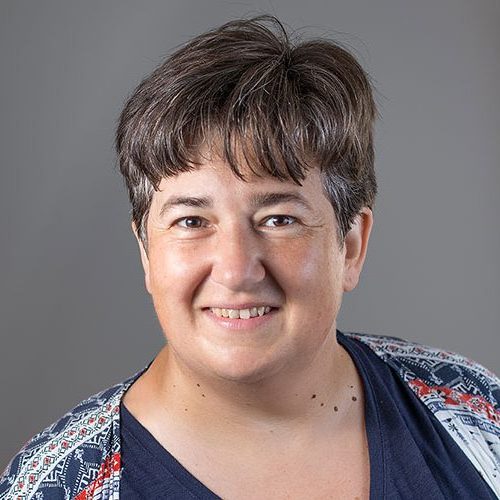CSAFE provides a range of offerings to further its mission to cultivate statistically sound forensics research and to transfer knowledge and technological innovations to the greater forensic science community. Designed specifically for forensic practitioners, CSAFE Courses can enhance technical innovation through earlier alignment of measurement science with emerging and innovative fields of research.
With a particular focus on probability and statistical terms and concepts, attending a CSAFE Course will enhance a participant’s ability to implement methodology and thus produce more accurate analytical conclusions. Check back regularly to see the latest Courses on offer, led by CSAFE researchers and focused on making the latest developments in the field applicable to those working in the field and in the lab.
Please contact us with any questions about attending CSAFE Courses or if you’d like to see a specific topic covered.
Short Courses
Short Courses are usually offered online and range from six to eight total learning hours. Each session will usually be two hours long and will include video and materials to cover a concept relevant to forensic practitioners.
Long Courses
Long Courses can last as long as a semester and will cover a single topic in depth. Instruction will include video, quizzes, and materials concepts relevant to forensic practitioners.
UPCOMING Short Courses
Statistical Thinking for Forensic Practitioners
Session 1: March 31, 2023 — 10:00 a.m. – Noon CT
Session 2: April 7, 2023 — 10:00 a.m. – Noon CT
Session 3: April 14, 2023 — 10:00 a.m. – Noon CT
Session 4: April 21, 2023 — 10:00 a.m. – Noon CT
Dr. Hal Stern introduces fundamental concepts from probability and statistics –– motivated by forensic issues –– followed by a detailed investigation of how they apply to assess forensic evidence’s probative value. This short course will be held online in four sessions. Each session builds upon the previous one(s) and recordings will be available in the event registrants are unable to attend one or more of the live sessions. Researchers, collaborators, and members of the broader forensics and statistics communities are encouraged to attend. Short course registrants who attend all sessions will receive a certificate of completion.
Session 1
Friday, March 31, 2023 — 10:00 a.m. – Noon CT
Probability Concepts and their Relevance to Forensic Science
Probability is the mathematical language of uncertainty. Probabilities are used to describe the frequency or likelihood of events or to characterize measurement uncertainty. In this first session, we introduce the laws of probability and their application in forensic settings. Specific topics include:- Definition and interpretation of probability
- Basic laws of probability
- Conditional probability and independence of events
- Bayes’ Theorem and Bayesian statistics
Session 2
Friday, April 7, 2023 — 10:00 a.m. – Noon CT
Sampling, Statistics and the Status Quo
Statistical ideas such as sampling, point and interval estimation of population quantities, and hypothesis testing have direct application in forensic science. In this session, we start from fundamental ideas about variability (and its sources) in measurements used in forensic analysis, and discuss methods to ameliorate, quantify, model, and interpret variation and uncertainty in the evaluation of forensic evidence. In more detail, we will:- Talk about variability and its sources, and introduce ideas such as reproducibility, repeatability, and accuracy.
- Briefly talk about populations and samples, and describe some sampling methods useful in forensic applications.
- Introduce the idea of estimation of population quantities such as means and proportions and of methods to report the uncertainty attached to those estimates.
- Describe how to carry out a test of hypothesis to compare two means and a test of equivalence to compare two means.
- Demonstrate how statistical concepts can be used in the study of current forensic science practice (e.g., design and analysis of black box studies)
Session 3
Friday, April 14, 2023 — 10:00 a.m. – Noon CT
Quantitative Tools for Forensic Evidence – Part I
The National Academies report in 2009 and the PCAST report in 2016 encouraged consideration of quantitative approaches to assessing forensic evidence. In this session, we review two of the most often-suggested quantitative approaches, the two-stage approach and the likelihood ratio (Bayes factor) approach. Specific topics include:- The two-stage approach to assessing forensic evidence
- The role of statistical tests in assessing the similarity of two samples
- Approaches for assessing the relevance of observed similarities
- Introduction to the likelihood ratio approach
- Definition and interpretation of the likelihood ratio/Bayes factor
- Possible applications to different types of evidence (DNA, trace, pattern)
- Score-based likelihood ratios
- Sensitivity of the likelihood ratio to modeling choices
- Results of studies comparing different ways of expressing source conclusions
Session 4
Friday, April 21, 2023 — 10:00 a.m. – Noon CT
Quantitative Tools for Forensic Evidence – Part II
The National Academies report in 2009 and the PCAST report in 2016 encouraged consideration of quantitative approaches to assessing forensic evidence. In this session, we review two of the most often-suggested quantitative approaches, the two-stage approach and the likelihood ratio (Bayes factor) approach. Specific topics include:- The two-stage approach to assessing forensic evidence
- The role of statistical tests in assessing the similarity of two samples
- Approaches for assessing the relevance of observed similarities
- Introduction to the likelihood ratio approach
- Definition and interpretation of the likelihood ratio/Bayes factor
- Possible applications to different types of evidence (DNA, trace, pattern)
- Score-based likelihood ratios
- Sensitivity of the likelihood ratio to modeling choices
- Results of studies comparing different ways of expressing source conclusions
Sampling for Forensic Practitioners
Session 1: April 28, 2023 — 10:00 a.m. – Noon CT
Session 2: May 5, 2023 — 10:00 a.m. – Noon CT
Session 3: May 12, 2023 — 10:00 a.m. – Noon CT
Dr. Alicia Carriquiry focuses on populations, sampling frames, sampling methods and geometric sampling. The emphasis will be on understanding how these methods are used to aid and enhance current forensic science practices. This Short Course will be held online in three sessions. Content in the second and third sessions will build upon content provided in the previous session(s). All sessions will be recorded and available for later viewing. Short course registrants who attend all sessions will receive a certificate of completion.
Machine Learning for Forensic Practitioners
Session 1: May 18, 2023 — 10:00 a.m. – Noon CT
Session 2: May 25, 2023 — 10:00 a.m. – Noon CT
Session 3: June 1, 2023 — 10:00 a.m. – Noon CT
Dr. Heike Hofmann provides an overview of machine learning and how it applies to forensic evidence. We will introduce attendees to the basics of supervised learning algorithms in the context of forensic applications while emphasizing classification trees, random forests, and neural networks. We will address some limitations of Machine Learning algorithms and introduce methods for assessing their performance. This short course will be held online in three sessions. Each session builds upon the previous one(s) and recordings will be available in the event registrants are unable to attend one or more of the live sessions. Researchers, collaborators, and members of the broader forensics and statistics communities are encouraged to attend. Short course registrants who attend all sessions will receive a certificate of completion.
Long Courses
Forensic Stats 101
Forensic Stats 101 is a continuing education course for forensic science practitioners provided by CSAFE and led by Dr. Alicia Carriquiry. This course addresses the core concepts related to probability, statistics, and their application to today’s forensics issues. You will learn how statistical principles apply the evaluation of evidence, including the assessment of the probative value of the evidence and the range of conclusions that can be derived from forensic analyses. This course equips you to address the core concepts of probability, statistics, and their application to today’s issues in forensic science –– no matter your prior knowledge of statistics.
The emphasis of the course is not on performing statistical analysis but on understanding why statistical ideas must guide the collection, visualization, exploration, analyses, and interpretation of evidence. The instructors will also discuss what can and cannot be concluded from various statistical analyses and how to present results that are supported by statistical findings.
Session 1: Introduction
Introduces concepts such as the scientific method, statistics as a mathematical science, and the difference between a population and a sample.
Session 2: The language of probability
Defines fundamental probability concepts and introduces standard mathematical notation used in probability.
Session 3: Collecting data
Discusses characteristics of a good sample and sampling design.
Session 4: Types of data
Defines categorical and quantitative data and discusses how they can be visually and numerically summarized.
Section 5: Probability models and uncertainty
Introduces concepts related to random variables and defines commonly used probability models.
Section 6: Inference
Explores common statistical inference techniques including point and interval estimation and hypothesis testing.
Section 7: Regression and analysis of variance
Introduces methods to mathematically describe the relationship between variables including simple linear, multiple linear, and logistic regression.
Section 8: Analyzing and interpreting forensic evidence
Compares different approaches to analyzing and interpreting forensic evidence including the two-stage approach and the likelihood ratio.
Section 9: Reporting and testimony
Compares and contrasts different approaches to reporting forensic evidence.




